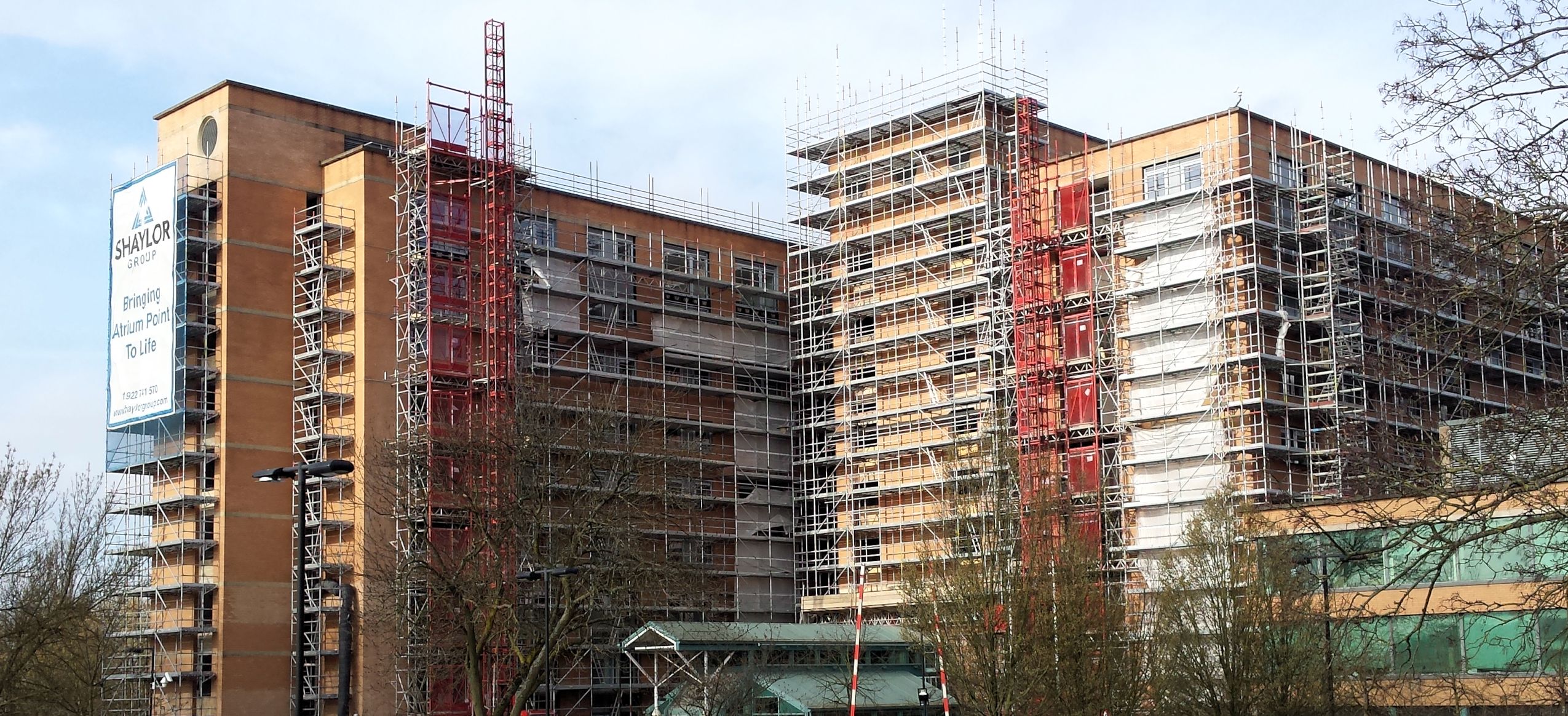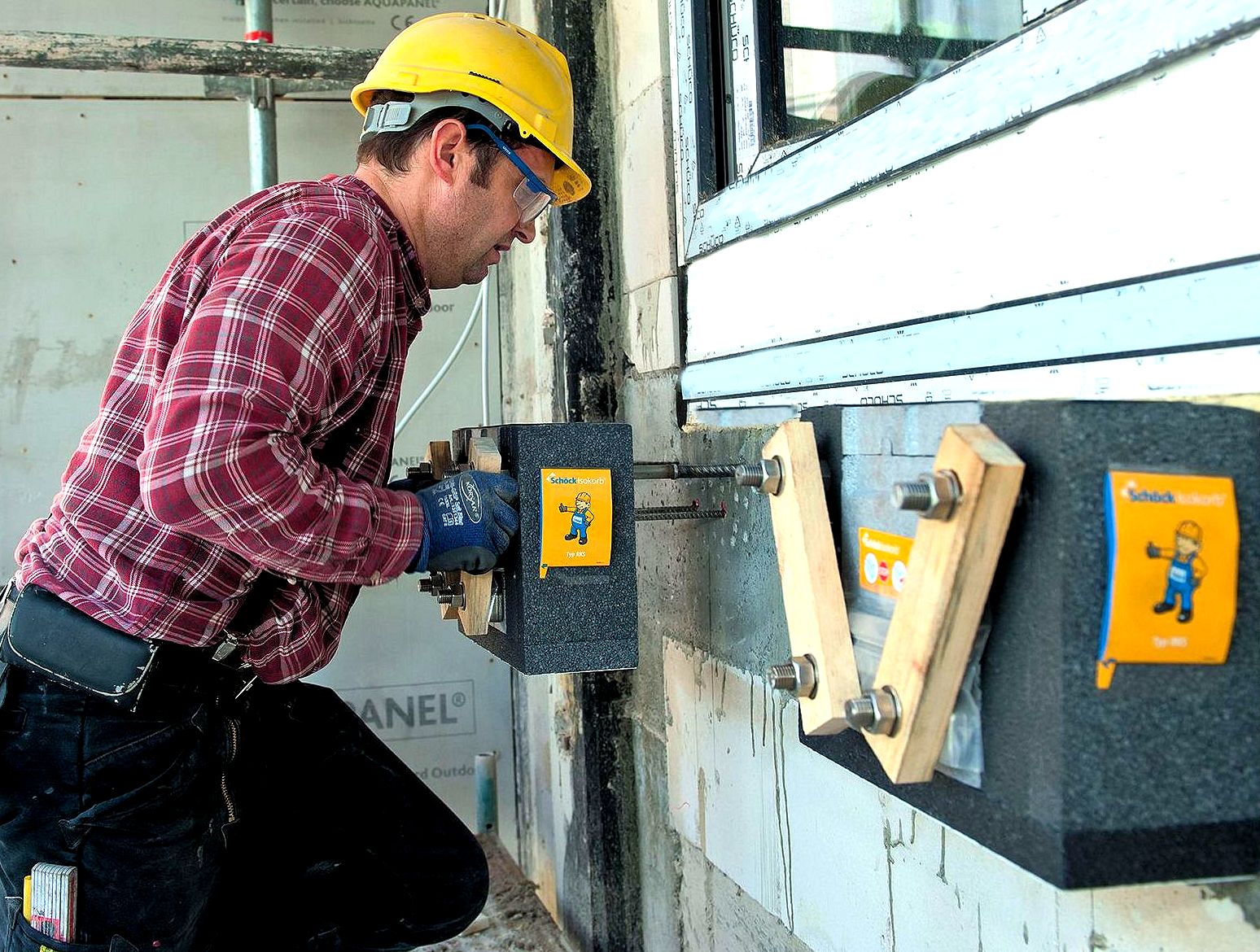The imposing Kellogg Tower at Sudbury Hill, in North West London, previously the London headquarters of the international turnkey projects contractor M.W Kellogg, is being converted and transformed into a contemporary residential scheme known as Atrium Point.
The existing buildings are being sustainably refurbished, with solar panels, air source pumps and heat recovery units, all contributing to meet CO2 reductions in the redevelopment.
It is currently one of the largest office-to-residential schemes in the capital and will realise a mix of a 290 studios, one and two bedroom apartments.
Many of the new units will benefit from a cantilevered steel balcony, supported to the existing reinforced concrete slab and naturally, structural thermal performance is a key consideration. Market-leading thermal break suppliers Schöck, are the go-to company for this type of specification, with the availability of their innovative Isokorb type RKS for refurbishment applications.
The product is fully certified as an “Energy saving component” by the Passivhaus Institute in Darmstadt, Germany, which highlights the importance of thermal performance, even for refurbishment projects of this type.
First introduced into the German, Austrian and Swiss markets, primarily as a retrofit product, the type RKS has a 120mm insulation element thickness and is a load-bearing thermal break that allows the replacement, or addition, of balconies to an existing building by connecting cantilevered steel balconies to the reinforced concrete slab.
It minimises thermal bridges at concrete-to-steel connections on cantilever balconies and transfers negative moments and positive shear forces. This offers a number of different options for integrated, energy-efficient building renovation and guarantees enormous scope for design.
The RKS also provides LABC registration and the highest level of BBA Certification. The requirement described in BRE IP1/06 – a document cited in Building Regulations Approved Documents Part L1 and L2 and Section 6 in Scotland – that the temperature factor used to indicate condensation risk (fRSI) must be greater than, or equal to, 0.75 for residential buildings – is easily met by incorporating the Isokorb.
View Thermal structural connectors Product Entry



 resized-comp212922.jpg)
